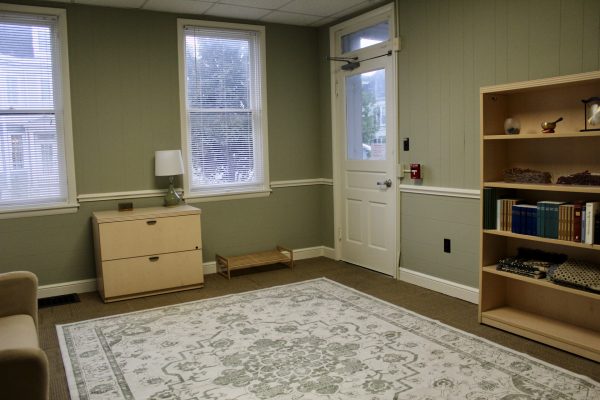Class Creates Walking Tour
A Dickinson class invites college students and the community to participate in a walking tour of Carlisle, featuring sites that are connected to reproductive justice. On April 18, The Women’s and Gender Studies class, Reproductive Justice, will be organizing the Reproductive Justice Walking Tour of Carlisle. According to Emily Lopkin ’15, “Students in the class will act as tour guides for different sites around the Dickinson campus and the Carlisle town, stopping at different sites to explain how certain locations relate to reproductive justice issues.”
Lopkin said that the class encourages both the Carlisle community and Dickinson students to attend the walk. “The purpose of this walk is to educate students and the community and give them the resources to make fair and informed decisions.” She added, “I am excited for the walking tour, to show the Dickinson and Carlisle communities how reproductive justice effects their everyday lives and how everyday sites can be part of the reproductive justice movement.”
Reproductive Justice is a 200 level course in the Women’s and Gender Studies department. “In this course, we are learning about the issues surrounding the termination and prevention of pregnancy, the support to give birth in self-determined ways and the issues surrounding keeping families together for the best interest of the child,” explained Lopkin, adding, “The reproductive justice movement includes racism, poverty and colonialism, and extends the conversation beyond just pro-life versus pro-choice dialogue.” Lopkin defined reproductive justice using the definition her class came up with, “Reproductive justice means autonomy over one’s body and its reproductive capabilities, as well as the education and resources to make fair and informed decisions. It has deep roots within human rights and feminist movements, and while it’s often used when considering women’s bodies and sexuality, it advocates for the rights of all sexes and genders. You may be familiar with the term ‘reproductive rights,’ which is similar, but we, and many others involved with the cause, prefer to use ‘justice’ to imply that granting rights is largely symbolic, and does not ensure access unrestricted by cost, stigma, availability, or discrimination.”
The class will meet on Britton Plaza at 1 p.m. on April 18 and should last an hour. There will be a Facebook event for students and community members to RSVP.



